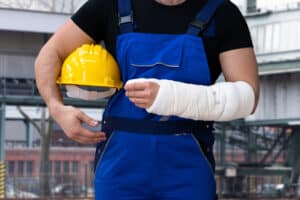Washington State Department of Labor & Industries
TUMWATER — Hundreds of teens get hurt on the job every year in Washington. There are numerous rules and laws to protect young workers, but sometimes employers don’t follow them, and teens are often unaware of them.
With the start of the summer job season, the Washington State Department of Labor & Industries (L&I) urges teens and parents to make sure young workers know their rights on the job and stay away from hazardous work that is illegal if they’re under 18.
In the wake of the catastrophic injury of a 16-year-old last summer, L&I is highlighting the pressing need to keep young workers away from hazardous work. The agency reminds teens, parents, schools, and employers that state and federal law prohibits teens from working certain dangerous jobs and using hazardous equipment, depending on age.
No youth under age 18 can use power-driven woodworking machines, circular or band saws, chainsaws, and power-driven metal forming or shearing machines on the job. Minors also can’t work in roofing, meat processing, or demolition, among other industries.
“For their own safety, there are some jobs that minors just can’t do,” said Suzanne Dover, L&I youth employment specialist. “Employers, parents, schools, and teens all have a role — and a responsibility — to ensure safety on the job.”
May is “Youth and Young Adult Employment Safety Month.” L&I has a list of prohibited workplace duties on its Teen and Young Worker Safety and Health website (www.Lni.wa.gov/Teenworkersafety) under the “Training & Resources” tab. A complete list of prohibited duties can be found under WAC 296-125-030, and WAC 296-125-033.
In the injury last summer, the teenage boy was working at a construction site using a walk-behind trencher. He was dragged underneath the blade, causing injuries so severe he lost both his legs.
Concerning figures
There were 751 Washington youth under age 18 who reported being injured on the job last year. That’s down from the past several years, including the last pre-COVID year in 2019, when 796 youth were injured.
Most injuries involved sprains, cuts, or other lacerations. But there were also 225 concussions, and 245 fractures. Most of the injuries took place in the retail and food service industries.
For young adults, age 18-24, there were 20,443 injuries reported in Washington. Young adults typically have a much higher injury rate, and make up a larger portion of the workforce than minors. The number is still below 2019 injuries, which totaled 22,271.
“At age 18, youth lose some of the extra protections they have as minors, but face many of the same issues as younger workers, including increased stress from doing work they might not have been trained to do,” said Michael Lynch, with L&I’s Division of Occupational Safety and Health (DOSH).
In fiscal year 2023, 111 businesses received citations for violating teen worker rights rule involving issues like prohibited duties, working teens beyond allowed hours, or missing meal and rest breaks. The citations resulted in nearly $600,000 in fines.
A role for employers, parents, schools, and teens
There are things employers can do to keep young workers safe on the job:
- Make sure they have a minor work permit endorsement on their business license, and have a signed parent/school or summer authorization form;
- Sign up for webinars on understanding laws and requirements at L&I’s calendar of workshops, events and webinars;
- Have a safety-focused environment on the job. Encourage teens and young adults to ask about safety training.
“Young workers have a voice in their safety,” Lynch said. “If a youth or young adult thinks they or another young person are in an unsafe work environment, they should speak up.” Complaint forms are available on L&I’s Workers’ Rights webpage.
Injured Young Workers Speakers Program
L&I also goes out to schools and other organizations with real workers who suffered tragic injuries on the job. They tell their stories and inspire young people to speak up for themselves and their right to safety in the workplace. L&I’s Injured Young Workers Speakers Program started in 2008 and provides workplace safety presentations targeting youth in schools statewide.
Programs are scheduled throughout the month and include: Issaquah High School, Issaquah, May 13; Franklin High School, Seattle, May 15; New Market Skills Center, Tumwater, May 23.
“We all play a part in keeping youth safe at work,” said Dover. “It’s important for employers, especially, to model good safety practices so teens can take that forward to other jobs.”
Read the original article here.





